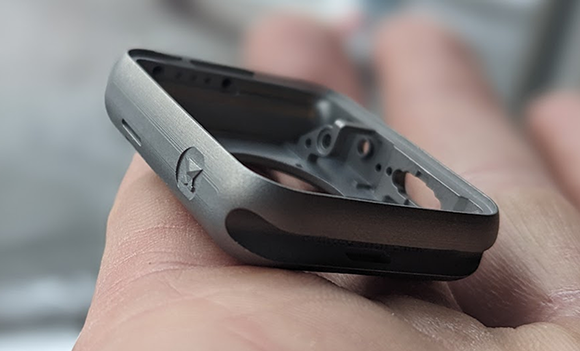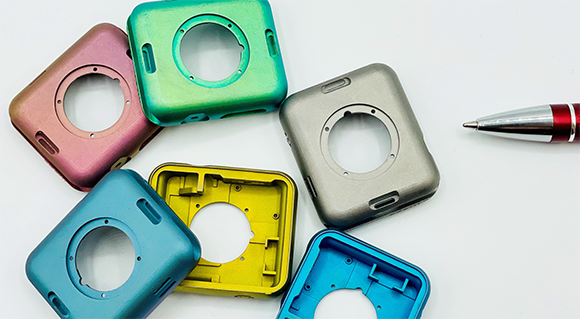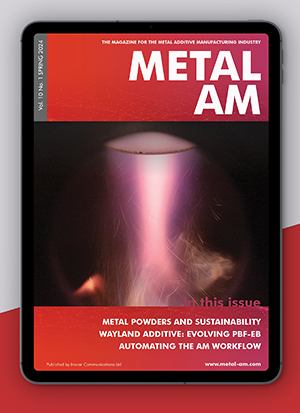Personalised titanium smart watch housings developed by Incus and Element22
January 5, 2024

Gerald Mitteramskogler, CEO of Incus GmbH, Vienna, Austria, has highlighted the potential of lithography-based metal manufacturing (LMM) technology, defined as a vat photopolymerisation process (VPP) by ISO/ASTM, in a detailed look at the production of personalised titanium smart watch housings. Working with Element22 GmbH, based in Kiel, Germany, the partners recognised the challenges of processing Ti64 in binder- or sinter-based Additive Manufacturing processes.
The R&D project resulted in a feedstock consisting of Ti64 powder at 55Vol% solids loading. The binder undergoes photopolymerisation during light irradiation, which results in the formation of a green part layer-by-layer. The green strength of the parts produced using LMM technology is said to be typically around 13 MPa in a three-point-bending setup, which is higher than other sinter-based AM processes. This high green strength allows for automated handling during extraction or de-powdering, and also facilitates the placement of the green parts onto the sintering setter, explained Mitteramskogler.
During the debinding and sintering process, the binder is thermally decomposed, leaving only the metal powder behind. A solids loading of 50Vol%+ is typically required to achieve dense and mechanically functional parts, which can be sintered to produce final solid materials with theoretical densities exceeding 99%. The LMM process results in a surface finish as low as 2µm Ra (as-sintered) and a resolution of 35 µm.

In addition to developing a low-carbon photopolymer-based binder system, an adapted thermal processing route for Ti64 was also achieved. The resulting Ti64 is said to showcase ‘remarkable’ mechanical properties, exceeding ASTM F2885-17 standards for medical implant applications.
Beyond the advantages of mass customisation, LMM is said to result in MIM-like quality parts within hours, rather than weeks. Matthias Scharvogel, CEO of Element22, added, “Being a user of LMM, we can achieve significant savings in time to market for our customers, especially for high-quality prototypes and mass customisation.”
Incus’ HammerPro40 AM machine can reportedly build up to sixteen watch cases in less than 2.5 hours, with an annual production capacity of approximately 35,000 pieces. Once sintered, the watch housing undergoes a sandblasting stage before being coloured.
“With a fully customised smartwatch housing, we can achieve a competitive cost structure compared to traditional manufacturing technologies, especially when designs can no longer be realised with MIM or CNC,” Mitteramskogler concluded.
The full report is available here.
Download Metal AM magazine

















